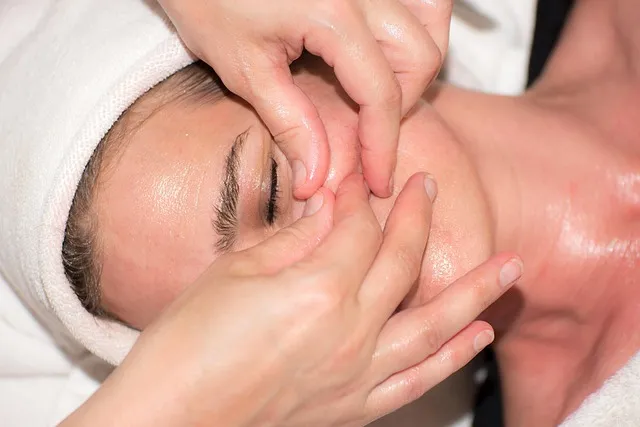|
Botox remains safe when used correctly. Research confirms no link to cancer. Real risks come from counterfeit products and untrained injectors, not from the treatment itself. |
You’ve seen friends talk about it, maybe even watched someone walk out of a clinic looking instantly refreshed. Botox has become part of the everyday beauty conversation. But then the question slips in: can Botox cause cancer? That’s the worry you hear whispered in forums, dropped in casual talks, or flashed across headlines. People want the truth without the noise. The answer rests in decades of science, safety reviews, and clinical research. Let’s break it down clearly.
Can Botox Cause Cancer? What the Research Says
Let’s answer the hard part first. Can Botox cause cancer? No. Multiple safety studies show no link between Botox and cancer. Researchers have looked at this question for years. If there were a connection, it would have appeared in safety reviews by now.
Botox works locally. It doesn’t travel around the body in dangerous amounts. Regulators like the FDA continue to approve it for both cosmetic and medical use. That stamp of approval is not casual. It’s based on decades of data. So when someone asks, Is Botox carcinogenic, the answer is consistently no.
Why People Believe Botox Might Cause Cancer
Still, fears don’t vanish just because studies say something is safe. People form opinions from what they hear, see, or read. There are a few reasons why the cancer worry sticks.
First, the word “toxin” carries weight. Botulinum toxin is one of the most lethal substances in nature. That fact sounds terrifying. It’s easy to assume that using even a small amount could be dangerous.
Second, stories travel faster than science. A single news article about counterfeit Botox can fuel endless threads on Reddit or Quora. One personal story turns into a “fact” repeated by thousands.
Third, long-term safety feels uncertain to many. If someone gets injections every few months for ten years, they wonder what’s building up inside them. The phrase long-term side effects of Botox keeps showing up in searches because people don’t like unanswered questions.
Here’s how those concerns usually look:
-
Origin of Botox: A toxin repurposed for beauty.
-
Frequency of treatments: Repeated sessions make people think of accumulation.
-
Scary case reports: Counterfeit or mishandled injections get headlines.
-
Community chatter: Forums and social groups spread half-true stories.
This is why Botox myths vs facts matter. Myths linger because they fit into fears people already have. Facts take longer to catch on.
What Botox Is and How It Works in the Body
Botox is just a purified, diluted form of botulinum toxin type A. It isn’t the raw toxin. Doctors inject tiny amounts into specific muscles, not the bloodstream.
Here’s how it behaves inside the body:
-
It blocks signals from nerves to muscles.
-
It relaxes muscles, which reduces wrinkles or stops spasms.
-
It wears off in about three to four months as nerves repair themselves.
That’s it. Nothing in that process suggests cell mutation or cancer growth. This is why Botox safety concerns are mostly about misuse, not biology.
Does Research Link Botox to Cancer or Tumor Growth?
Research doesn’t just look for short-term effects. It tests long-term safety, too. And here’s the result: no connection between Botox and cancer.
An NIH-indexed review published in 2025 went further than most. It found that Botox injections were not only safe but also useful in cancer care. Patients receiving it for pain management or treatment support reported improvements in quality of life. If the treatment carried a cancer risk, it wouldn’t be allowed in those contexts.
So when someone types Botox and cancer research, the overwhelming answer is: there’s no evidence of tumor growth or carcinogenic effects. Scientists continue to watch, of course. But millions of treatments have been recorded without a cancer pattern.
Is Botox Safe for Long-Term Use?
Most people who worry about cancer actually mean this: Is Botox safe long term? That’s where subtle effects matter.
Yes, Botox is safe for years of use. Still, the body adapts. Muscles that are relaxed for long periods may weaken slightly. Expressions can change when muscles don’t contract as they used to. These are cosmetic shifts, not life-threatening ones.
Common Long-Term Side Effects
-
Temporary weakness in targeted muscles.
-
Bruising or mild swelling at injection points.
-
Rare drooping of eyelids or uneven expressions if injected poorly.
-
Headaches on the first day or two after treatment.
These issues are temporary. They don’t lead to cancer. They fall under the safety of Botox side effects, which experts review constantly.
Actual Safety Concerns
The bigger problem isn’t the toxin itself. It’s the source. Botox and health risks usually come from:
-
Counterfeit products are sold outside regulated supply chains.
-
Untrained injectors working in unsafe conditions.
-
Lack of FDA oversight in non-medical settings.
What Studies Show
Long-term safety has been tested in both cosmetic and medical patients. Botox safety studies confirm that even after years of use, cancer has not appeared as a risk. That’s why FDA-approved Botox safety still holds strong today.
Common Questions People Ask About Botox and Cancer
You see the same searches again and again. People don’t just want science. They want direct answers.
-
Does Botox cause cancer? No, it does not.
-
Is Botox safe if you already have cancer? Yes. In fact, it’s sometimes used during treatment for symptom relief.
-
Can Botox spread in the body? Not in doses used for cosmetic or therapeutic purposes.
-
Is Botox carcinogenic? No. Scientific reviews say clearly that it is not.
-
What do experts say about the Botox cancer risk? They agree there’s no cancer link when used responsibly.
How to Stay Safe If You’re Considering Botox
The safety of Botox depends on the person giving the injection more than the product itself. If you want real peace of mind, here’s what matters.
1. Pick the Right Provider
Look for board-certified doctors or nurse practitioners. Years of training matter when working with a neurotoxin, even in small amounts.
2. Avoid Counterfeit Products
This is where most horror stories come from. Counterfeit Botox isn’t regulated, and that’s where serious reactions happen.
3. Ask Smart Questions
-
How long have you been performing Botox?
-
Where do you source your product?
-
What do you do if side effects occur?
-
Do you follow FDA guidelines for storage and dosing?
4. Stay Informed
Don’t just trust ads. Read actual Botox safety studies. Look at updates from the FDA. See what experts are saying about Botox and cancer research.
When you follow these steps, you reduce nearly all realistic Botox safety concerns.
Final Thoughts
So, back to the original question. Can Botox cause cancer? No, it does not, and it cannot. Years of data, ongoing research, and FDA oversight point to the same conclusion. The real risks lie in poor practice, counterfeit supply, and unlicensed providers. With the right care, Botox remains safe, effective, and far from the cancer rumors.
Frequently Asked Questions
Is Botox considered safe by health authorities?
Yes, the FDA and other global health agencies consider Botox safe when administered by licensed professionals.
Can long-term Botox use increase the chances of developing cancer?
No evidence suggests that long-term or repeated Botox treatments raise cancer risk.
Who should avoid Botox injections for safety reasons?
People with neuromuscular disorders, pregnant or breastfeeding women, and those allergic to its ingredients should avoid Botox.
What are the most common side effects of Botox?
Mild pain, swelling, or bruising at the injection site are the most common and temporary side effects.
Can Botox migrate to other parts of the body after injection?
Botox may spread slightly from the injection site, but this is rare when done correctly by an experienced provider.
-User-1754380331.png)
Reviewed by







